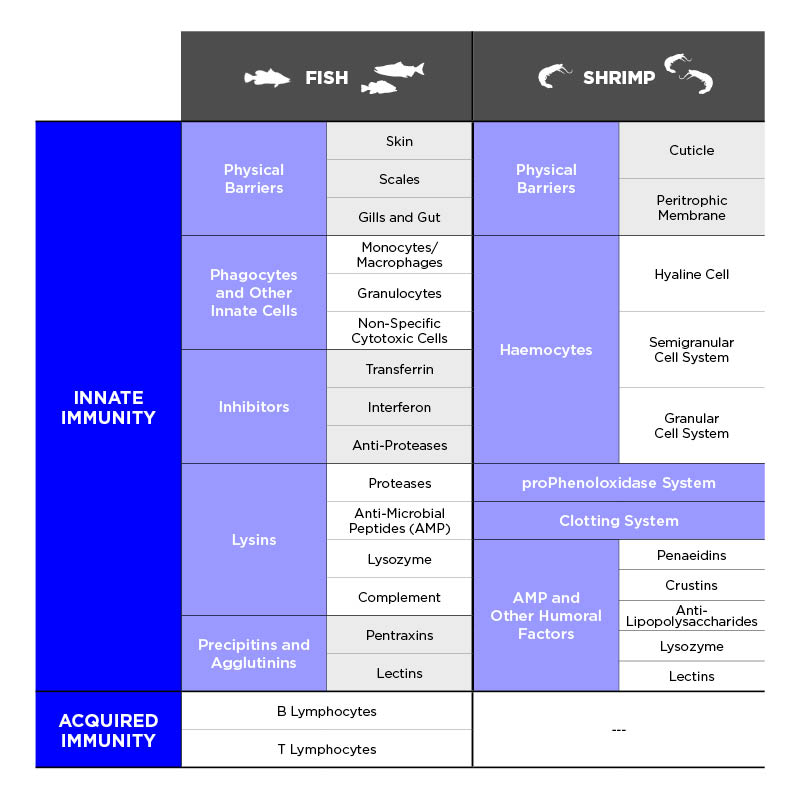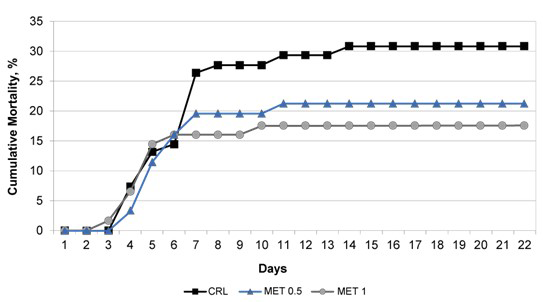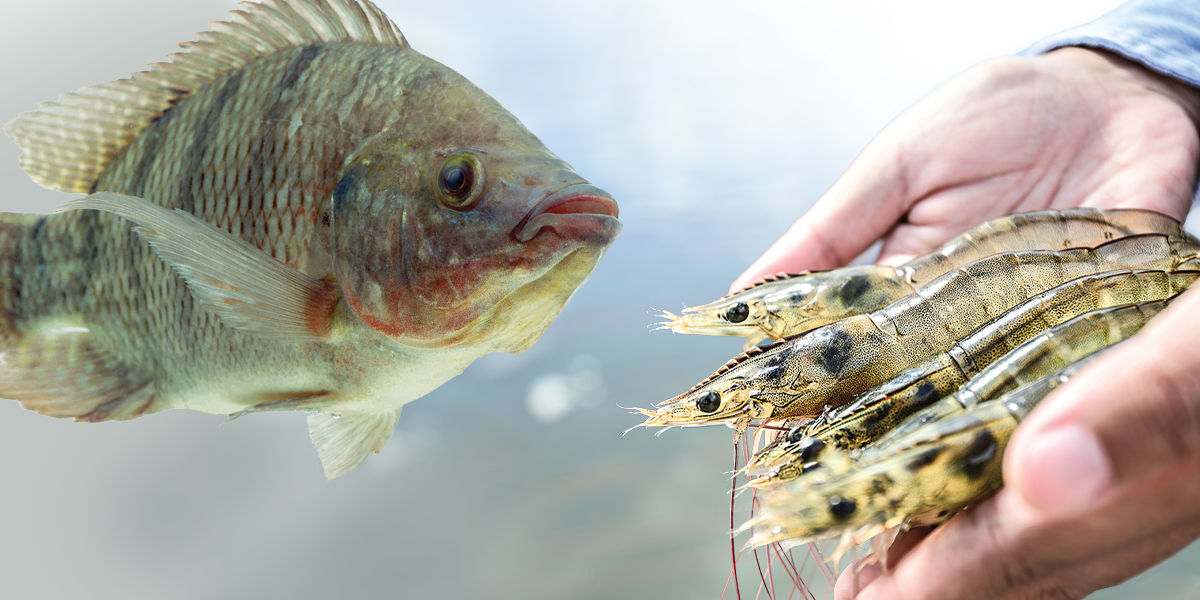Supplementation with trace minerals among other essential nutrients such as amino acids, essential fatty acids and vitamins is a proven nutritional strategy to strengthen fish and shrimp immune systems. Over the last ten years, I have committed to discover and share knowledge of practical application of nutrition in the aquaculture industry. It starts with education on why essential nutrients, including trace minerals, play an important role in mitigating stress in fish which in turn improves their health and performance. I recently had the opportunity to present alongside by industry expert Benjamín Costas, who received his PhD degree in Animal Science by the University of Porto in 2011 and currently serves as Senior Researcher and coordinator of Animal Health and Aquaculture (A2S) at CIIMAR. Below is actionable information he presented on how to use nutritional immunology as a tool to boost health in fish and shrimp.
Understanding Fish and Shrimp Immunology
The first line of defense for fish and shrimp are their external barriers, which are directly supported by their immune system. Like other animal species, both fish and shrimp immunity may be innate (a rapid, non-specific response present in the animal at birth) and fish immunity may also be acquired (immunity that develops when the immune system responds to foreign microorganisms). The two types of immunity are mediated through several structures, cells and humoral factors which can vary depending on the species.
The table below summarizes major components of fish and shrimp immune systems, while highlighting major differences between the two.

It is important to note that immune responses differ by animal species and the stimuli. The physiological and immune status of fish may differ among species, is age dependent (younger animals are more susceptible) and affected by rearing system and conditions (ponds, cages, density, etc.). Therefore, nutritional strategies to boost the host’s immune responses must be adapted to the species and their particular rearing conditions.
This can be accomplished with the development and application of functional feeds.
Methionine Supplementation Enhances Acquired Immunity
As an example of functional nutritional response, supplementing aqua diets with methionine may lead to immune system improvements. Typical responses include an increase in peripheral leucocyte response, complement activity and bactericidal capacity, and an increase in inflammatory responses including cellular and humoral responses affecting cellular recruitment inflammatory focus (Machado M., 2015; Azeredo R., 2017).
Below are mortality results of European seabass after receiving a peritoneal cavity injection of pathogenic bacteria (Photobacterium damselae piscicida) when being fed one of three dietary treatments.

Quality Fish Feed Includes Algae in Dietary Formulation
Algae contains various bioactive compounds, such as highly unsaturated fatty acids (HUFA), cell wall polysaccharides and pigments/polyphenols, which may improve immune response.
Fish receiving diets supplemented with three species of microalgae (Tetraselmis striata, Phaeodactylum sp. and Nannochloropsis sp.) and two seaweeds (Gracilaria gracilis and Ulva rigida) demonstrated an increase in leukocyte response (neutrophils) when challenged with the bacteria Photobacterium damselae piscicida.

After one week of algae supplementation, fish fed Ulva rigida had higher neutrophil response indicating that algae improves fish immune response and may make them more resistant to pathogens.
Immunostimulants vs. Immunomodulators in Aquaculture
Let’s focus on short versus long term strategies and the difference between immunostimulants and immunomodulators.
Immunostimulants are compounds that activate the innate immune response and therefore should always be given in short periods of time. Chronic immunostimulation (longterm) often results in negative health effects with a subsequent increase in nutrient demand at a cost to normal productive function, such as growth.
On the other hand, immunomodulators usually induce important changes in immune response only once the host is stimulated. For example, a given additive may not change immune parameters after multiple weeks of feeding, yet an immune response is boosted after an infection and often results in improved survival. Therefore, the supplementation of nutrients with immunomodulator role should be considered as a long-term strategy to support health.
Four Nutritional Immunology Considerations
- Availability: many additives and ingredients are available to improve animal health condition but their availability for large scale production may be a limiting factor.
- Species and lifecycle: the dosage of a certain additive should be established for a given species and age.
- Long-term vs. short-term strategy: both should be considered when selecting for an immunomodulator or an immunostimulatory compound.
- Sustainability: functional diets may be key factors to improve an animals’ health condition under challenging conditions, thus preventing disease outbreaks, contributing to industry sustainability and limiting the use of antibiotics.
Connect with Fish and Shrimp Nutrition Experts
Our world class team of experts are committed to improving the immunity of your fish and shrimp, supporting the longevity of your operation while enabling production of more nutritious products for a heathier, more sustainable food supply. Reach out to your Zinpro Representative to learn how our experts can work with you to help improve your aquaculture operation through high quality nutrition.

